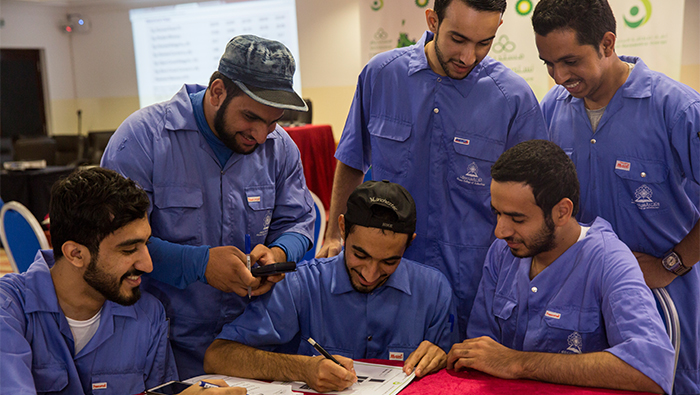
Muscat: Nafath has launched the second edition of “Mustadeem”, an initiative aimed towards supporting of renewable energy.
Sponsored by BP Oman’s as part of its Social Investment Programme for a subsequent year, the initiative aims to inculcate the social culture of renewable energy and the importance of its sustainability amongst 450 university and college students in the Sultanate. The objective is to realise the general framework the Sultanate has adopted regarding the environment conservation, contribution of finding power sustainable alternatives and promotion of optimal utilisation of renewable energy sources.
Commenting on the initiative Shamsa Ahmad Al Rawahi, BP Oman Social Investment Programme Officer said: “BP Oman is targeting and investing in sustainable initiatives which have significant societal and economic impact. We hope ‘Mustadeem’ continues to play an active role in raising community awareness about alternative energy and the importance of ustilising Oman’s natural resources.”
The second season of Mustadeem will be conducted in seven universities and colleges across Oman. The second season will be complementing the first version of the initiative, the initiative’s activities covered both educational and practical aspects, connecting cognitive skills with practical applications in the field of renewable energy, raise the students’ awareness and enhance their research skills. The activities include organising a number of training and technical workshops as well as awareness lectures around pure energy and the ways of its usage. Also, they comprise the construction of energy systems including solar panels and wind turbines.
Speaking of the importance of this initiative, Eng. Abdullah Nassir Al Saidi, Chief Executive Officer of Nafath Renewable Energy said, “The solar energy is one of the most important pure renewable energy sources in Oman. As the Sultanate usually has clear skies, it receives a daily solar radiation of about 5,500 to 6,000 watt-hours per square meter in the months of July, while the same reaches 2,500 to 3,000 watt-hours per square meter in January, making the Sultanate one of the world’s highest solar density areas.”
“The programme has started this year coinciding with the issuance of legislations and laws governing the solar energy sector in the Sultanate. In return, this would add value to the programme by qualifying the youth to enter the job market, improving their practical skills in a way that enhances their career prospects in the future,” Al Saidi added.
‘Mustadeem’ will also invest on available opportunities to generate entrepreneurs in the renewable energy sector by spreading Nafath’s experience in this field and inspiring those who are interested in entrepreneurship. Overall, this will create a balanced market between the need for solar resources and entrepreneurs who provide it.